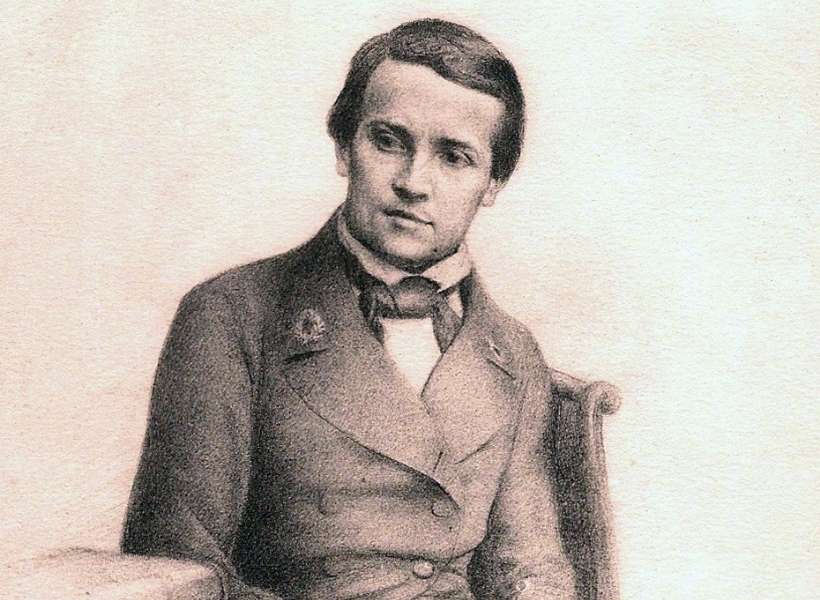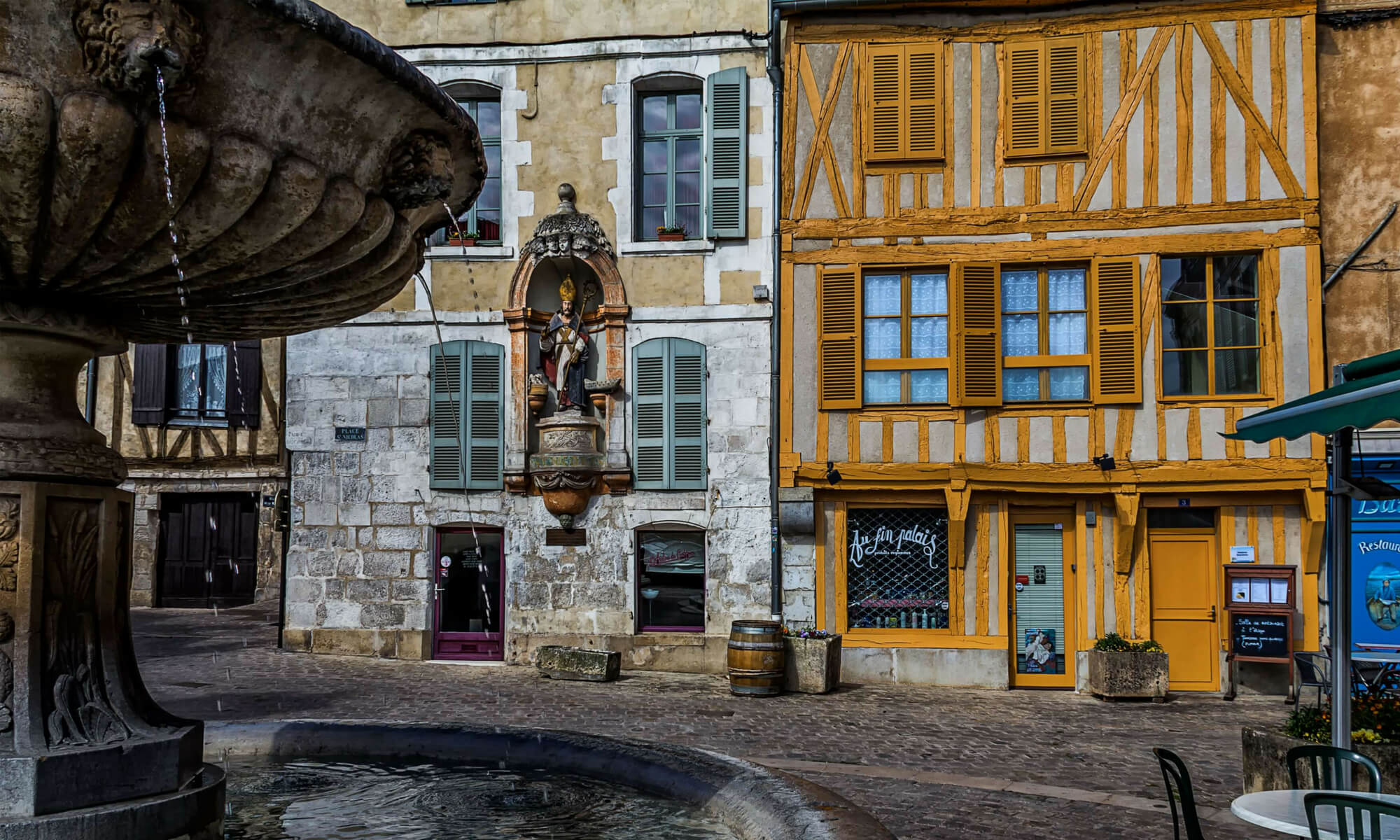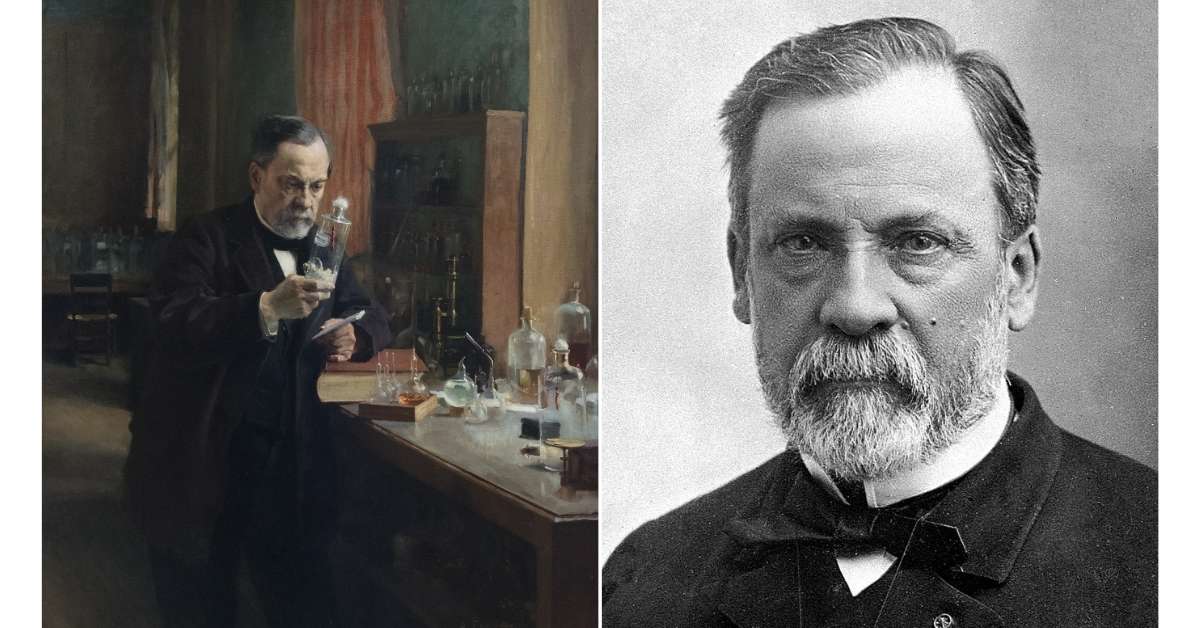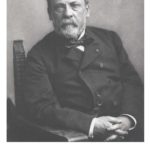This post contains affiliate links, meaning I get a commission if you decide to make a purchase through my links, at no cost to you. Please read my disclosure page for more details.
Category: French History
This episode features our frequent and very popular guest Elyse Rivin. If you enjoy her episodes, please consider supporting her on Patreon.
In this episode Annie and Elyse talk about the long history of vaccines and how Louis Pasteur made tremendous contributions to the field. We also talk about the life and career of a simple man who changed the world with science and careful observation.
The Pasteur Institute in Paris is closed right now, both because of Covid-19 and for renovations. Check their website for updates.
Book recommendation: Louis Pasteur by Albert Keim. Annie picked this one because it goes over Pasteur's life in some detail.
Go to the Join Us in France YouTube channel to see the hedgehog video.
Louis Pasteur’s Origins
Louis Pasteur came from generations of farmers in the Franche-Comté area (a region along the Swiss border with Besançon as its capital.) His grandfather had left the farm to become soldier in Napoleon’s army.
If you ever wonder why French people liked Napoleon so much, here’s one reason. Napoleon, being of humble birth himself, saw nothing wrong with promoting the sons of peasants within the ranks of his army. He made it possible for anyone to serve and gain recognition in his service.
Pasteur’s father ran a successful tannery business and was a kind man who valued education and was eager to send his son to study in Paris. But Louis Pasteur was the kid who was always doodling. Everyone in his family feared he might become an artist because that’s all that interested him as a child. His father had great admiration for professors, so he pushed him in that direction.
Pasteur’s Education
Louis Pasteur’s father had great admiration for professors, so he pushed his son, who was clearly bright and eager to learn, to go in that direction.
High School
He went to boarding school in Besançon because there was no high school in his small home city of Arbois. Pasteur passed his baccalaureate with a specialization in Greek, Latin and Literature. He got poor grades in history and geography but did great in all the scientific subjects.
Ecole Normale
Louis Pasteur applied to go to the Ecole Normale in Paris. That’s where he decided to study the sciences and after 3 years he had his degree in physical sciences. He could have been sent off to teach somewhere in rural France at that point, but his teachers hired him as an assistant in the Ecole Normale laboratory. In other words he started grad school.
Ph.D in Chemistry
His PhD was on the molecular structure of crystals, sulfurs and salts. He worked very hard and was able to solve a major problem that his predecessors had been struggling with: the plane of polarization of crystals. He was invited to present his discovery at the College de France in the Latin Quarter, very prestigious indeed!
Physics Professor in Dijon
Then, PhD in hand, the French administration being what it is, they sent him to teach physics in Dijon. He wasn’t happy about it because leaving the College de France for Dijon felt like a demotion, but he went and applied himself to be the best teacher he could be.
Chemistry Professor in Strasbourg, Meeting His Wife
Then they assigned him to teach at the University in Strasbourg as a chemistry teacher where he stayed for 5 years. That’s where he met the daughter of the University President, Marie Laurent, and asked for her hand in marriage within 2 weeks of meeting her! They were a match made in heaven and stayed together until the end of their life. They had 5 children together. They were a traditional couple where she dedicated her life to his well-being and that of their children and was extremely successful at it. She was a bright outstanding woman and he couldn’t have achieved everything he did without her help.
Dean of the Chemistry Faculty in Lille
After moving to Lille to accept a new teaching challenge, he got interested in germ theory, fermentation and that led to the pasteurization process.
He was able to prove that fermentation was due to the presence of living cells called yeasts. He researched how yeast works in beer, wine, vinegar, bread, and cheese. This was a practical field of study in France where food production is a major business. Producers heard about this professor who could solve problems that often destroyed their production.
Louis Pasteur Solving Industrial Problems
Vinegar Production
For instance, in vinegar production, he studied the process and experimented with it until he could give vinegar producers a process with rules to follow that never failed. It took him a full year, but he found the formula for success. This included hygiene, how much product to use, how long to wait. They loved him because you can make better money if you never waste any of your production.
Silk Worms and the Silk Industry
He knew zero about silk worms when he started, but he figured out why silk worms got sick and died. These producers were relying on superstitions to try and save their worms but spraying sulphur, ashes and ground mustard did no good.
It turned out you that most of the silk worms used in France carried a pathogen. This pathogen sometimes caused disease and death and sometimes not. There were a lot of healthy carriers that passed it on without getting sick themselves. The only way was to get rid of the healthy carriers. How do you know who is a healthy carrier? You keep track of their progeny. If the disease appears in the second generation, you’ve got to get rid of the parents. By doing that over time he isolated families of healthy worms. But that meant killing lots of worms that didn’t appear to be sick. This was not a popular idea, a mob of angry farmers started throwing stones at him, but it was the only way.
Spontaneous Generation
Pasteur showed that spontaneous generation was not a thing. People thought that when a liquid started to ferment, it was because microbes appeared spontaneously within the liquid. He showed this cannot be the case and that invisible microbes carried in dust and in the air must get into the liquid to get the process started. Showing that there are invisible microbes was the start of Pasteur’s fame because everyone was fascinated with this business of spores and germs in the air.
Pasteurization
He also showed that heat kills germs and that’s the process we still use called pasteurization. One good example of that is the shelf-safe milk and cream that we use in France. This is possible because of something called ultra-high temperature processing, I think it’s called Tetra Pack in the US. Once milk is processed that way, you can store it on the shelf until you open it when new germs might get in. Does it change the taste of the milk?
Eating raw milk cheese in France. Not recommended for kids under 2, pregnant women, older people, and immune suppressed people.
A Full Life
Pasteur faced lots of personal problems mixed in all of his work. Two of his daughters died, his father died, students went on strike at the Ecole Normale, he was still arguing with the old guard scientists about spontaneous generation, and he didn’t have a decent lab to conduct his experiments in Paris. He interrupted his work for all of these things, wrote letters to ask for help, and always returned to the problem at hand until he was satisfied that he now understood what was happening and offered a solution.
But while there were plenty of people harassing him and criticizing him, he was also the recipient of every honor ever bestowed upon scientists. Not just in France, but all over the world. He always responded to these honors with humility. He said his parents and his country made him great. He brought forward all the people who made his work possible.
Pasteur and Vaccines
Pasteur is most famous for his work on contagious diseases, but he did not invent the first vaccine. That honor goes to Englishman Edward Jenner who came up with the first vaccine against smallpox in 1796. To simplify things a lot, Jenner noticed that both cows and humans can get different versions of smallpox, but people who work with cows and have been in contact with cow smallpox are then immune to human smallpox!
Building on Jenner's Work
Pasteur extrapolated from Jenner’s discovery and wondered if giving an attenuated version of a disease could immunize you against this same disease. He tested this theory with a chicken disease called fowl cholera, then with anthrax, and with swine erysipelas.
Anthrax
With anthrax, Pasteur was able to get an attenuated version of the bacteria and showed that the attenuated bacteria would protect against the virulent form of the microbe. He proved this with the help of a veterinarian who didn’t think this could ever work, but let him have access to 50 sheep.
Pasteur injected half of the sheep with the attenuated anthrax and did nothing to the other 25. A while later he came back to inject all 50 sheep with a virulent form of anthrax. The 25 that had been inoculated lived, the ones that hadn’t been inoculated all died. He convinced everyone with this demonstration, especially members of the public who saw him as a here. But doctors weren’t so sure about this Pasteur character who trained as a chemist and claimed he could cure serious diseases!
This is when Pasteur decided to double down and try his theories with rabies, a dreadful disease that kills 100% of those who contract it, be they human or some other mammal.
Louis Pasteur's Crown Achievement: a Rabies Vaccine
I cannot say enough that rabies was one of the most horrible cause of death for any animal or human stricken by it. Any mammal can get rabies and it was most frequently seen in dogs. Feral dogs would fight with domesticated dogs and bring the disease to humans. Pliny the Elder said to cure rabies you had to catch the rabid dog that bit the kid and make the kid eat the liver of the rabid dog. There was no cure for this. Any child who had the disease had to be suffocated between two mattresses before he infected the rest of his family. Just horrible.
Pasteur tested the rabies vaccine protocol on various animals for 4 years before he tested it on a child. From casual observations he had concluded that rabies was a neurological disease, so he took bone marrow from rabbits who had died of rabies and experimented with it. He method was to let the infected bone marrow dry out in the open air. He thought that exposure to air was doing the job of attenuating the virulence. We now know that he wasn’t correct about that, but air + time worked, so he lucked out. He speculated that the longer you let it out to dry, the less rabies you’d find in the sample.
Eventually he arrived at this protocol: He’d inject 14-day-old rabbit marrow into a dog. The next day he’d inject 13 day old rabbit marrow into the same dog, and on and on until he could inject the dog with virulent rabies and the dog survived.
Joseph Meister
One day a desperate mother from Alsace came to Pasteur with her son Joseph, who was 9 years old and had been bitten by a rabid dog. Mrs Meister knew her son would die as doctors couldn’t cure rabies in 1885. So, against medical recommendations, she sought out Pasteur and convinced him to try his cure on the child. Pasteur started by inoculating him with the least virulent dosage then increased the dose slowly. 2 months after he was bitten the boy still hadn’t developed any signs of rabies (or hydrophobia as it was called in his day), so he inoculated him with the full dose and that still didn’t cause the disease to appear in the boy. Joseph Meister is the first person who survived rabies in the world.
The second was a 15yo shepherd from the Juras who fought with a rabid dog to protect his fellow shepherd dogs. His case was more advanced as he only got the first vaccination 7 days after being bitten. But the boy survived.
A girl, Louise Lepellier died even though she received the vaccine, but she was inoculated 37 days after she was bitten, which was much too late.
Hearing about Rabies as a Kid Growing Up in France
When I was a kid, I remember my mother telling us of kids we knew who had been bitten by dogs in Toulouse had to have several shots. That scared me, of course. But back then growing up in a city like Toulouse that had large fields and even small forests at the edges, the presence of rabid dogs was not impossible.
Pasteur kept track of the children he inoculated. Wrote to them, made sure they were still OK years later.
Then Pasteur raised money so he could open clinics all over the world where people could bring their kids who had been bitten by a rabid dog. The vaccine works 100% of the time but it has to be administered within 6 days or before the infected host shows any sign of the disease. Rabies shots are easy to come by now and today’s formulation is totally different than what Pasteur did.
In Europe they inoculate wild animals by putting rabies vaccine in bait and we hardly ever see any cases of rabies. But it’s still common in Africa and other places. I don’t think they inoculate wild life in the US, so don’t let your kids play with wild animals.
The Pasteur Institute
Thanks to the success of his rabies vaccine, funds arrived from all over the world to build the Pasteur Institute, inaugurated in 1888. Pasteur was there to see this glorious day. This institute is dedicated to the science of vaccines in both human and veterinary medicine. The original building is in the 15e.
New Pasteur Institute spring up every year where research needs to be done about specific diseases. It follows the pattern he himself followed. Go where the disease is observed and study it in situ.
Conclusion
There are some controversies surrounding Pasteur. He was definitely a man of his time. First of all, did he really do all this work without the contribution of women scientists? Maybe he did, but I find it strange that he didn’t credit women for anything.
Experimentation on prisoners. He also proposed that maybe men condemned to death could be used for human experimentation. I don’t think he ever did it, but he considered it as we see in several letters.
He practiced medicine without a medical license. The fact that he never received a medical license is controversial also. It would not fly nowadays, but back then he got away with it.
Pasteur didn’t like Germans. He lived through the invasion of Paris by German soldiers and developed a deep-seeded hatred of all things German. He went as far as asking them to take back the honorary degrees he had received from German universities.
It’s amazing to me that a man trained in chemistry ended up making such huge strides in medicine.
I didn’t talk about it here, but he fastidious about cleanliness and he is at the origin of the washing protocols we have in medicine today. He is the reason why surgical instruments are autoclaved and sterile everything is used in medicine. He was a bit OCD about hand washing himself.
More episodes about French history
FOLLOW US ON:
Subscribe to the Podcast
Apple YouTube Spotify RSSSupport the Show
Tip Your Guides Extras Patreon Audio Tours
Category: French History



